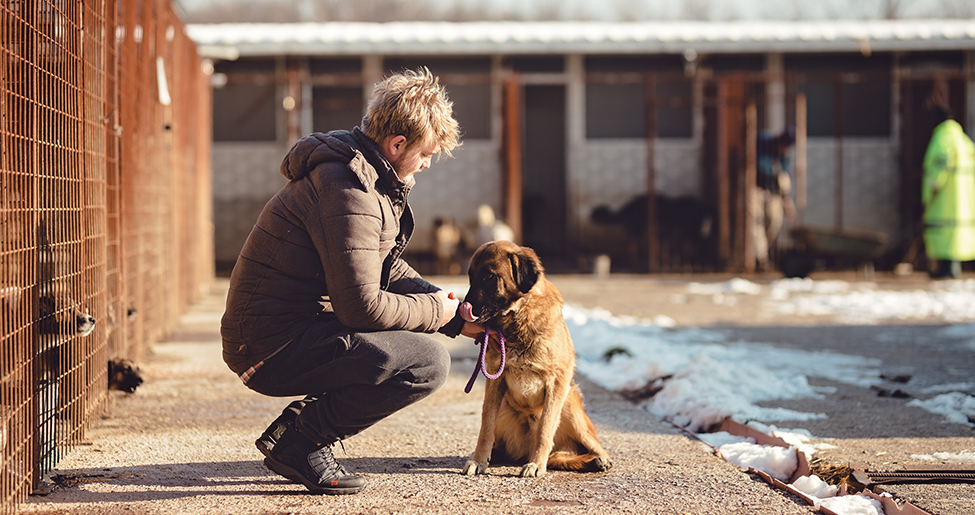Are you wild about animals? If so, working for an animal charity may just be a dream come true! There are many across the UK, both local and national, from shelters to animal rights organisations. But whether you’re working with animals themselves or in an office-based role, certain skills are required to keep our furry friends safe and champion their welfare. Here are five of the most important.
1. Empathy
Empathising with animals may sound strange, given that our lives are so clearly different from theirs. But when dealing with animal welfare, you need to consider what the animals have gone through and how it may have affected them.
Many animals in care will have experienced difficult situations and may be timid or even violent in reaction to that. That’s why animal service workers must know how to approach them with understanding.
Even if you don’t work with animals directly—if you’re a fundraiser or campaigner, for example—empathy will help you appeal more effectively for donations and do the best work you can to help out.
Find out how to apply empathy to your working life.

2. Patience and sensitivity
Patience is key. Animals have a natural need to protect themselves from potential attackers, which is why they can be aggressive towards humans. However, if handled sensitively and gently, they’ll eventually feel comfortable in your care.
Depending on the type of animals and their condition, this could take time. So you’ll need to be patient and wait for them to come to you. They will when they’re ready. The more contact they have with humans that aren’t threatening to them, the more at home they’ll feel in their new environment.
3. Animal handling knowledge
What qualifications are needed to work with animals? It depends on the role. To be a vet, for example, you’ll need a degree in veterinary medicine. Some other jobs require an animal care or animal behaviour qualification. But there are also plenty of opportunities to work with animals without these.
Animal handling includes being able to read their body language and tailor your approach to their mood and emotions. Some charities provide training in this, but it can be helpful to do a bit of work in your own time to get set up.
Over time, you can acquire skills through practice and experience of working with animals. One way to learn basic animal handling skills is by volunteering at an animal shelter.

4. Safeguarding
Remember, many animals in care have been abused or mistreated, so it takes a thick skin to do this kind of work. Animal cruelty takes several different forms, but the impact is the same—just like us, they experience fear and pain.
Anyone wanting to work at an animal charity should know about animal safeguarding, especially if you’re hoping to get a job on the frontline working with animals directly. Understanding behaviour is key to protecting their wellbeing. The Animal Welfare Foundation has produced a guide to recognising abuse.
5. Communication
Even if your job involves mainly working with animals, you’ll also need to effectively communicate with people. This includes both colleagues and the public. The better you can communicate, the easier it’ll be to keep things running smoothly and achieve the organisation’s goals.
Knowing how to work effectively in a team is invaluable. Practice active listening—this includes using body language, asking questions, reflecting and avoiding interrupting. And no matter how stressful the situation is, try to use positive statements—avoid blaming or denial.
Find out how to develop your communication skills.
Think this sounds like the right career for you?
Then get applying! There plenty of amazing animal charities in the UK looking for enthusiastic and passionate staff and volunteers.
Take a look at which charities are hiring now.
This post was originally published in 2021. We’ve updated it to ensure relevance and to reflect the current job seeker experience.
Vet Finders
Vet Finders is a veterinary recruitment agency with a social mission. Donating 25% of ALL profits to one of four chosen animal charities, they work with animal hospitals and charities all over the UK.








